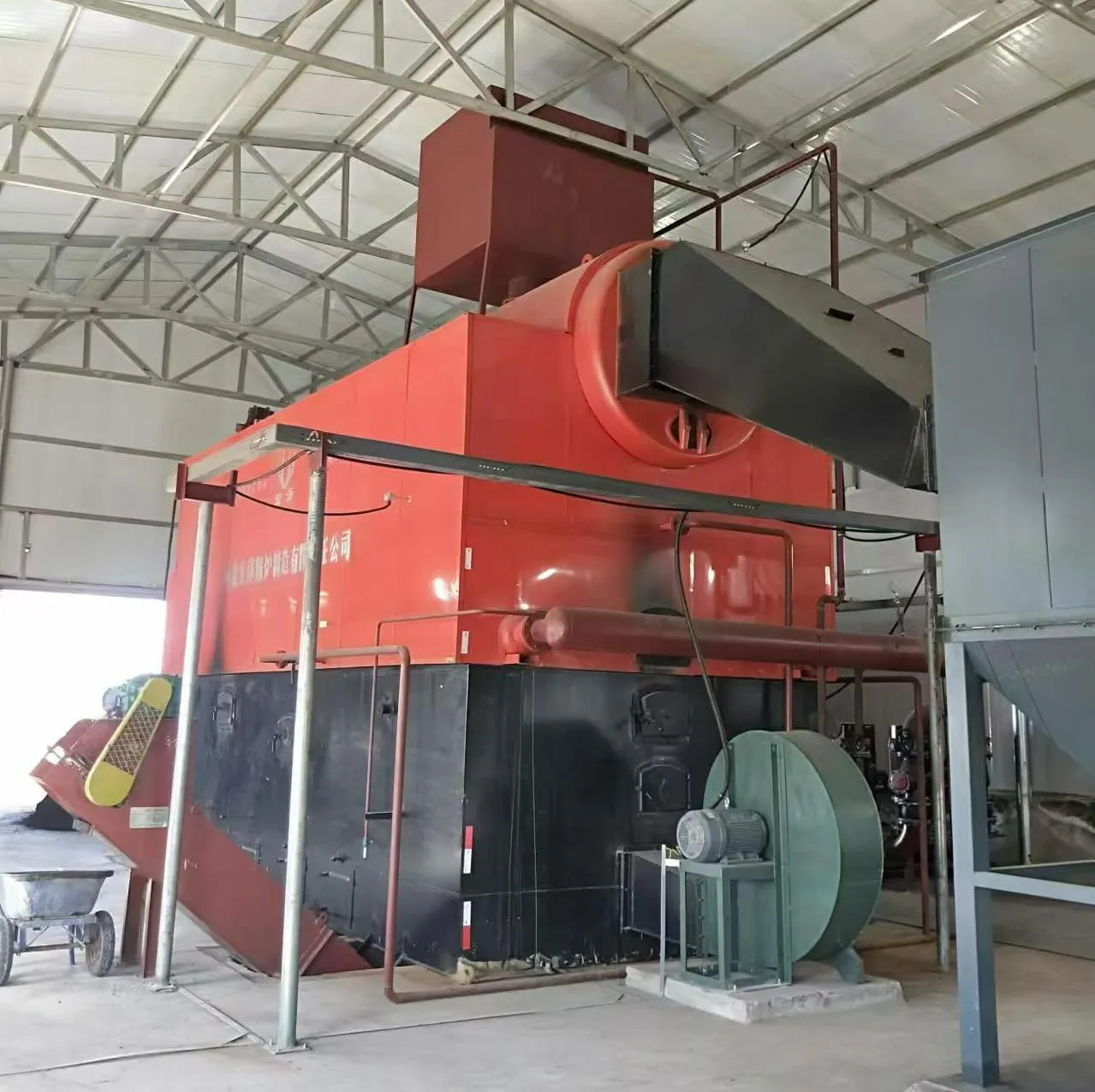
نوفمبر . 16, 2024 02:34 Back to list
thermal fluid boiler
The Importance and Functionality of Thermal Fluid Boilers
Thermal fluid boilers play a crucial role in various industries where reliable heating and temperature control are essential. Unlike conventional steam boilers, thermal fluid boilers utilize liquid heat transfer mediums, typically organic thermal fluids or water, to transfer heat throughout a system. This technology has gained popularity due to its efficiency, flexibility, and safety features, making it an indispensable asset in numerous industrial applications.
How Thermal Fluid Boilers Work
At the core of a thermal fluid boiler is its ability to heat a special heat transfer fluid to high temperatures without creating pressure as intense as that found in steam systems. The boiler typically consists of a furnace, heat exchangers, and circulating pumps. The heating process generally starts by burning a fuel, such as natural gas, fuel oil, or biomass, in the furnace. The heat generated from this combustion is transferred directly to the thermal fluid, which is then circulated through various processes or to end users in the system.
A critical aspect of thermal fluid boilers is their ability to operate at temperatures often exceeding 300°C (572°F) without significant pressure buildup. As a result, the systems primarily benefit from reduced risks of pressure-related failures, making them safer alternatives to traditional steam boilers.
Advantages of Thermal Fluid Boilers
1. Operational Safety Since thermal fluid boilers operate under lower pressures than steam boilers, there is less chance for catastrophic failures. This characteristic is particularly appealing for industries looking to minimize risks associated with high-pressure systems.
2. Energy Efficiency Thermal fluid systems are designed to deliver high thermal efficiency. The heat transfer fluid allows for rapid and uniform heating across processes, ensuring that energy is used effectively and minimizing waste. This efficiency translates to lower operating costs and improved sustainability for businesses.
3. Versatility in Applications These boilers can be used in a variety of industrial processes ranging from food processing to chemical manufacturing and even in power generation. They are ideal for applications requiring precise temperature control, such as in pyrolysis reactors or cover processes sensitive to temperature fluctuations.
thermal fluid boiler

Common Applications of Thermal Fluid Boilers
Thermal fluid boilers are widely utilized in various industries for different heating applications. Some prominent fields include
- Chemical Processing Many chemical reactions require precise temperature control to ensure optimal yield and quality. Thermal fluid boilers provide the stable heat required for these applications. - Food and Beverage Industries involved in food processing often require steam for sterilization or heating. Thermal fluid systems can efficiently meet these needs without the complexities associated with steam boilers.
- Plastics Manufacturing Thermal fluid is extensively used in the plastics sector for various processes, including extrusion and molding, where consistent and high temperatures are necessary.
- Textiles The textile industry uses thermal fluid systems for drying and finishing processes, benefiting from the precise temperature controls these boilers provide.
Future Trends and Innovations
As industry demands evolve, the thermal fluid boiler market is likely to see several advancements focused on efficiency, emissions reduction, and alternative energy sources. Innovations such as solar thermal fluid systems, which harness solar energy as a heat source, could further enhance the sustainability of thermal heating processes. Additionally, integrating modern controls and smart technology could lead to even better performance management, predictive maintenance, and operational monitoring.
Conclusion
Thermal fluid boilers are a vital component of modern industrial processes, delivering safe and efficient heating solutions across various sectors. Their ability to operate at high temperatures without excessive pressure makes them an attractive option for applications requiring precise and stable heat. As technology advances, the potential for thermal fluid systems to contribute to more sustainable industrial practices will only grow, solidifying their importance in the global economy. With businesses increasingly seeking efficiency and safety, thermal fluid boilers will likely continue to play a pivotal role in shaping the future of industrial heating solutions.
-
How to Maintain a Steam Boiler Expert Tips for Efficiency & Longevity
NewsApr.29,2025
-
Professional Steam Boiler Service AB Expert Maintenance & Repair
NewsApr.29,2025
-
Hot Water Steam Boilers Efficient Heating Solutions & Expert Tips
NewsApr.29,2025
-
Hot Water Boiler Capacity Calculation Guide Efficient Design Tips
NewsApr.28,2025
-
How to Drain a Steam Boiler Step-by-Step Safety Guide
NewsApr.28,2025
-
How to Install a Hot Water Boiler Optimal Pressure & Efficiency Guide
NewsApr.28,2025
Related PRODUCTS






















